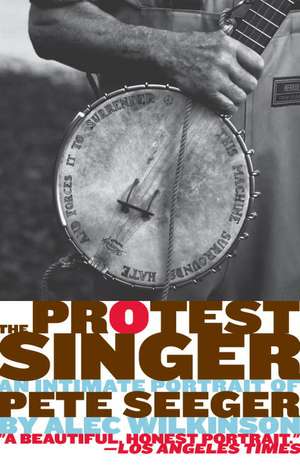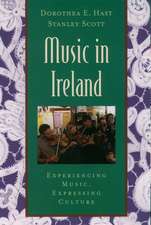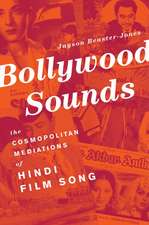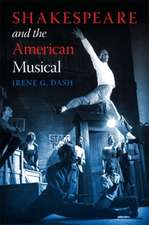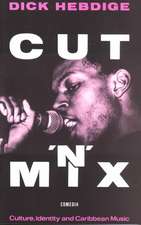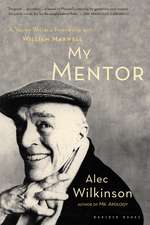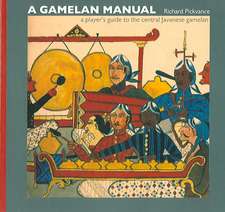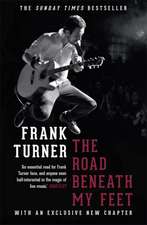The Protest Singer: An Intimate Portrait of Pete Seeger
Autor Alec Wilkinsonen Limba Engleză Paperback – 31 mai 2010
Pete Seeger transformed a classic American musical style into a form of peaceful protest against war, segregation, and nuclear weapons. Drawing on his extensive talks with Seeger, Alec Wilkinson delivers a first hand look at Seeger's unique blend of independence and commitment, charm, courage, energy, and belief in human equality and American democracy. We see Seeger, the child, instilled with a love of music by his parents; Seeger, the teenager, hearing real folk music for the first time; Seeger, the young adult, singing with Woody Guthrie. And finally, Seeger the man marching with the Rev. Martin Luther King in Selma, standing up to McCarthyism, and fighting for his beloved Hudson River. The gigantic life captured in this slender volume is truly an American anthem.
Preț: 99.94 lei
Nou
Puncte Express: 150
Preț estimativ în valută:
19.13€ • 19.76$ • 15.92£
19.13€ • 19.76$ • 15.92£
Carte disponibilă
Livrare economică 04-18 martie
Preluare comenzi: 021 569.72.76
Specificații
ISBN-13: 9780307390981
ISBN-10: 0307390985
Pagini: 151
Ilustrații: 30 PHOTOGRAPHS
Dimensiuni: 168 x 218 x 13 mm
Greutate: 0.2 kg
Editura: Vintage Books USA
ISBN-10: 0307390985
Pagini: 151
Ilustrații: 30 PHOTOGRAPHS
Dimensiuni: 168 x 218 x 13 mm
Greutate: 0.2 kg
Editura: Vintage Books USA
Notă biografică
Alec Wilkinson began writing for The New Yorker in 1980. Before that, he was a policeman in Wellfleet, Massachusetts, and before that a rock-and-roll musician. He has published eight other books—two memoirs, two collections of essays, two biographical portraits, and two pieces of reporting. His honors include a Guggenheim Fellowship, a Lyndhurst Prize, and a Robert F. Kennedy Book Award. He lives with his wife and son in New York City.
Extras
SEEGER’S POLITICS are of the most extravagantly conservative kind. He believes ardently in the Constitution and the Bill of Rights. His interpretation of them is literal. In his years of activism, through the movements for workers’ rights, civil rights, the movement against the Vietnam War, and the ecological movement, in all of which he figured prominently, there is no conceit that he has more emphatically embraced than that all human beings are created equal and have equal rights. In the early and middle parts of the twentieth century, such a conviction made a person not a patriot, but a socialist. When Seeger moved to Beacon, in 1949, he held a couple of meetings with a middle- age couple, the only other Communists around, then quit the party. “I thought it was pointless,” he said. “I realized I could sing the same songs I sang whether I belonged to the Communist Party or not, and I never liked the idea anyway of belonging to a secret organization.”
After lunch we went out and looked at the river, and I could see where Seeger had been standing, in 1955, when a car arrived, and the man driving it asked if he was Pete Seeger. Then he handed Seeger an envelope and left. Seeger opened the envelope and called out to Toshi, “They’ve finally got around to me.” He had been summoned to testify before the House Un- American Activities Committee, in August.
Toshi found a lawyer who told Seeger that the option most commonly invoked was to cite the Fifth Amendment, which would lead to the case’s being dismissed. Seeger didn’t care for the inference of guilt that the gesture implied. People who had done so were sometimes described as “Fifth Amendment Communists.” The lawyer also said that Seeger could choose to talk about himself to the committee but refuse to talk about other people. “I had known I could do that,” Seeger told me, “because my father, in 1952, I think it was, had to resign his job inWashington when the FBI came and spoke to him, and he said, ‘I’m willing to undress myself in a sentence, but I’m not going to tell about anyone else I know.’ They said, ‘You’ve got to tell about everyone.’ He said he wasn’t willing to do that. He knew he would be fired, so he walked in the next morning and resigned. He was head of the music department of the Pan American Union. He’d hoped to hang on for a few years, since he hadn’t the savings, but he closed down his house—a great big house that he’d raised four kids in—and his wife had just died a few months earlier, and my sister was going to Radcliffe, so he went up and got a crowded little apartment in Cambridge. Anyway, the lawyer told me if, at the hearing, I answered the question, ‘Are you a member of the Communist Party?’ the next question would be, ‘Who did you know?’ ”
The third choice was to rely on the First Amendment, which guarantees freedom of speech and “the right of the people peaceably to assemble, and to petition the Government for a redress of grievances.” The Hollywood Ten, a group of screenwriters and producers, had tried this in 1947, and been convicted of contempt, jailed for a year, and then blacklisted. Employing this tactic, Seeger might spend years in court, have his career ruined, and still go to jail. The lawyer left the choice to Seeger. He told him not to bait the committee, to be polite, to answer their questions, or say why he wouldn’t. Refusing to answer would result in a contempt citation, and each citation could be worth a year in jail. As the hearing approached, the lawyer reviewed with Seeger the questions he was likely to be asked.
Seeger appeared before the committee, in New York, on August 18, 1955. He was interrogated by Walter Tavenner, the committee counsel; Representative Francis Walter, the chairman; Gordon Scherer, a congressman from Ohio and a former prosecutor; and Edwin Willis, a congressman from Louisiana. “They were small- town politicians,” Seeger said. “Walter was a lawyer from the coal country.”
Seeger wore a tweed jacket, a plaid shirt, a yellow tie, and dark pants. Toshi sat in the audience, with his banjo. The men asked what Seeger did for a living. Student of American folklore, he said, but he made his living as “a banjo picker.” Before going into the Army, had he practiced his profession?
“It is hard to call it a profession,” Seeger said. “I kind of drifted into it and I never intended to be a musician, and I am glad I am one now, and it is a very honorable profession, but when I started out actually I wanted to be a newspaperman, and when I left school—”
“Will you answer the question, please?” Tavenner asked.
“I have to explain that it really wasn’t my profession,” Seeger said. “I picked up a little change in it.”
“Did you practice your profession?”
“I sang for people, yes, before World War II, and I also did as early as 1925.”
“And upon your return from the service in December of 1945, you continued in your profession?”
“I continued singing, and I expect I always will,” Seeger said.
Tavenner was maneuvering Seeger toward admitting that he had sung for the Communist Party. Then he would ask him to name all the other people who had done the same thing or to name people who had listened to him. He referred to an announcement in the Daily Worker from 1947 which read, “Tonight— Bronx, hear Peter Seeger and his guitar, at Allerton Section housewarming.” Was the Allerton Section a section of the Communist Party, Tavenner asked?
Seeger refused to answer. When pressed, he said, “I am not going to answer any questions as to my association, my philosophical or religious beliefs or my political beliefs, or how I voted in any election, or any of these private affairs. I think these are very improper questions for any American to be asked, especially under such compulsion as this. I would be very glad to tell you my life if you want to hear of it.”
They didn’t. Tavenner asked instead if Seeger had performed at a May Day Rally in 1948.
“I believe I have already answered this question, and the same answer,” Seeger said.
Walter asked what that answer was.
“I feel that in my whole life I have never done anything of any conspiratorial nature,” Seeger said, “and I resent very much and very deeply the implication of being called before this committee that in some way because my opinions may be different from yours, or yours, Mr. Willis, or yours, Mr. Scherer, that I am any less of an American than anybody else. I love my country very deeply, sir.”
“Why don’t you make a little contribution toward preserving its institutions?” Walter asked.
“I feel that my whole life is a contribution,” Seeger said. “That is why I would like to tell you about it.”
“I don’t want to hear about it,” Walter said.
Scherer asked that Seeger be directed to answer, a formality. Each time a witness was directed to answer and didn’t, he was regarded as being in contempt. Seeger said he had already answered.
“Let me understand,” Scherer said. “You are not relying on the Fifth Amendment, are you?”
“No, sir,” Seeger said, “although I do not want to in any way discredit or depreciate or depredate the witnesses that have used the Fifth Amendment, and I simply feel it is improper for this committee to ask such questions.”
“And then in answering the rest of the questions,” Scherer said, “or in refusing to answer the rest of the questions, I understand that you are not relying on the Fifth Amendment as a basis for your refusal to answer?”
“No, I am not, sir.”
Tavenner continued to ask about events where Seeger was said to have taken part. Seeger would say, “My answer is the same as before,” and Scherer would say, “I think we have to have a direction.” When a song was mentioned, Seeger would offer to sing it, and he would be rebuffed.
Some ways into their discourse, Tavenner gave Seeger a photograph, taken at a May Day parade in New York, in 1952, in which Seeger is wearing an Army uniform, and carrying a sign that says “Censored.”
“Will you examine it, please, and state whether or not that is a photograph of you?” he asked.
Seeger looked at the photograph. “It is like Jesus Christ when asked by Pontius Pilate, ‘Are you king of the Jews?’ ” Seeger said.
As if admonishing a child, Chairman Walter said, “Stop that.”
“Let someone else identify that picture,” Seeger said.
“I ask that he be directed to answer the question,” Scherer said.
“I direct you to answer the question,” Chairman Walter said.
“Do I identify this photograph?” Seeger asked. Walter said, “Yes.”
“I say let someone else identify it.”
From the Hardcover edition.
After lunch we went out and looked at the river, and I could see where Seeger had been standing, in 1955, when a car arrived, and the man driving it asked if he was Pete Seeger. Then he handed Seeger an envelope and left. Seeger opened the envelope and called out to Toshi, “They’ve finally got around to me.” He had been summoned to testify before the House Un- American Activities Committee, in August.
Toshi found a lawyer who told Seeger that the option most commonly invoked was to cite the Fifth Amendment, which would lead to the case’s being dismissed. Seeger didn’t care for the inference of guilt that the gesture implied. People who had done so were sometimes described as “Fifth Amendment Communists.” The lawyer also said that Seeger could choose to talk about himself to the committee but refuse to talk about other people. “I had known I could do that,” Seeger told me, “because my father, in 1952, I think it was, had to resign his job inWashington when the FBI came and spoke to him, and he said, ‘I’m willing to undress myself in a sentence, but I’m not going to tell about anyone else I know.’ They said, ‘You’ve got to tell about everyone.’ He said he wasn’t willing to do that. He knew he would be fired, so he walked in the next morning and resigned. He was head of the music department of the Pan American Union. He’d hoped to hang on for a few years, since he hadn’t the savings, but he closed down his house—a great big house that he’d raised four kids in—and his wife had just died a few months earlier, and my sister was going to Radcliffe, so he went up and got a crowded little apartment in Cambridge. Anyway, the lawyer told me if, at the hearing, I answered the question, ‘Are you a member of the Communist Party?’ the next question would be, ‘Who did you know?’ ”
The third choice was to rely on the First Amendment, which guarantees freedom of speech and “the right of the people peaceably to assemble, and to petition the Government for a redress of grievances.” The Hollywood Ten, a group of screenwriters and producers, had tried this in 1947, and been convicted of contempt, jailed for a year, and then blacklisted. Employing this tactic, Seeger might spend years in court, have his career ruined, and still go to jail. The lawyer left the choice to Seeger. He told him not to bait the committee, to be polite, to answer their questions, or say why he wouldn’t. Refusing to answer would result in a contempt citation, and each citation could be worth a year in jail. As the hearing approached, the lawyer reviewed with Seeger the questions he was likely to be asked.
Seeger appeared before the committee, in New York, on August 18, 1955. He was interrogated by Walter Tavenner, the committee counsel; Representative Francis Walter, the chairman; Gordon Scherer, a congressman from Ohio and a former prosecutor; and Edwin Willis, a congressman from Louisiana. “They were small- town politicians,” Seeger said. “Walter was a lawyer from the coal country.”
Seeger wore a tweed jacket, a plaid shirt, a yellow tie, and dark pants. Toshi sat in the audience, with his banjo. The men asked what Seeger did for a living. Student of American folklore, he said, but he made his living as “a banjo picker.” Before going into the Army, had he practiced his profession?
“It is hard to call it a profession,” Seeger said. “I kind of drifted into it and I never intended to be a musician, and I am glad I am one now, and it is a very honorable profession, but when I started out actually I wanted to be a newspaperman, and when I left school—”
“Will you answer the question, please?” Tavenner asked.
“I have to explain that it really wasn’t my profession,” Seeger said. “I picked up a little change in it.”
“Did you practice your profession?”
“I sang for people, yes, before World War II, and I also did as early as 1925.”
“And upon your return from the service in December of 1945, you continued in your profession?”
“I continued singing, and I expect I always will,” Seeger said.
Tavenner was maneuvering Seeger toward admitting that he had sung for the Communist Party. Then he would ask him to name all the other people who had done the same thing or to name people who had listened to him. He referred to an announcement in the Daily Worker from 1947 which read, “Tonight— Bronx, hear Peter Seeger and his guitar, at Allerton Section housewarming.” Was the Allerton Section a section of the Communist Party, Tavenner asked?
Seeger refused to answer. When pressed, he said, “I am not going to answer any questions as to my association, my philosophical or religious beliefs or my political beliefs, or how I voted in any election, or any of these private affairs. I think these are very improper questions for any American to be asked, especially under such compulsion as this. I would be very glad to tell you my life if you want to hear of it.”
They didn’t. Tavenner asked instead if Seeger had performed at a May Day Rally in 1948.
“I believe I have already answered this question, and the same answer,” Seeger said.
Walter asked what that answer was.
“I feel that in my whole life I have never done anything of any conspiratorial nature,” Seeger said, “and I resent very much and very deeply the implication of being called before this committee that in some way because my opinions may be different from yours, or yours, Mr. Willis, or yours, Mr. Scherer, that I am any less of an American than anybody else. I love my country very deeply, sir.”
“Why don’t you make a little contribution toward preserving its institutions?” Walter asked.
“I feel that my whole life is a contribution,” Seeger said. “That is why I would like to tell you about it.”
“I don’t want to hear about it,” Walter said.
Scherer asked that Seeger be directed to answer, a formality. Each time a witness was directed to answer and didn’t, he was regarded as being in contempt. Seeger said he had already answered.
“Let me understand,” Scherer said. “You are not relying on the Fifth Amendment, are you?”
“No, sir,” Seeger said, “although I do not want to in any way discredit or depreciate or depredate the witnesses that have used the Fifth Amendment, and I simply feel it is improper for this committee to ask such questions.”
“And then in answering the rest of the questions,” Scherer said, “or in refusing to answer the rest of the questions, I understand that you are not relying on the Fifth Amendment as a basis for your refusal to answer?”
“No, I am not, sir.”
Tavenner continued to ask about events where Seeger was said to have taken part. Seeger would say, “My answer is the same as before,” and Scherer would say, “I think we have to have a direction.” When a song was mentioned, Seeger would offer to sing it, and he would be rebuffed.
Some ways into their discourse, Tavenner gave Seeger a photograph, taken at a May Day parade in New York, in 1952, in which Seeger is wearing an Army uniform, and carrying a sign that says “Censored.”
“Will you examine it, please, and state whether or not that is a photograph of you?” he asked.
Seeger looked at the photograph. “It is like Jesus Christ when asked by Pontius Pilate, ‘Are you king of the Jews?’ ” Seeger said.
As if admonishing a child, Chairman Walter said, “Stop that.”
“Let someone else identify that picture,” Seeger said.
“I ask that he be directed to answer the question,” Scherer said.
“I direct you to answer the question,” Chairman Walter said.
“Do I identify this photograph?” Seeger asked. Walter said, “Yes.”
“I say let someone else identify it.”
From the Hardcover edition.
Recenzii
"A beautiful, honest portrait."--Los Angeles Times
"A slim, lucid volume . . . packs in all the key twists and turns in Seeger's very full life."--Boston Globe
"Wilkinson has done a magnificent job of creating a picture of a virtuous and principled man."--Minneapolis Star Tribune
"In prose as unassuming as his subject, Wilkinson captures Seeger's unpretentious, down-to-earth manner."--San Francisco Chronicle
"In crisp, elegant prose, Wilkinson outlines Seeger's early life, his family's influence upon his work, his activism for peace, civil rights and the environment, and his friendships with other legends such as Woody Guthrie."--Dallas Morning News
"A quick read that is both pithy and entertaining."--Christian Science Monitor
“Wilkinson's biography reads as lucidly as if we were there with him, listening to Seeger's history as he boils maple sap down to syrup and chops his daily quota of firewood.”—Publishers Weekly
"[Wilkinson] draws a picture of the folk singer not only by summoning up his history, public and private, but by giving us the man observed, in small swatches of manner and conversation.”--Newsday
“Unmistakably affectionate.”—Booklist
"A slim, lucid volume . . . packs in all the key twists and turns in Seeger's very full life."--Boston Globe
"Wilkinson has done a magnificent job of creating a picture of a virtuous and principled man."--Minneapolis Star Tribune
"In prose as unassuming as his subject, Wilkinson captures Seeger's unpretentious, down-to-earth manner."--San Francisco Chronicle
"In crisp, elegant prose, Wilkinson outlines Seeger's early life, his family's influence upon his work, his activism for peace, civil rights and the environment, and his friendships with other legends such as Woody Guthrie."--Dallas Morning News
"A quick read that is both pithy and entertaining."--Christian Science Monitor
“Wilkinson's biography reads as lucidly as if we were there with him, listening to Seeger's history as he boils maple sap down to syrup and chops his daily quota of firewood.”—Publishers Weekly
"[Wilkinson] draws a picture of the folk singer not only by summoning up his history, public and private, but by giving us the man observed, in small swatches of manner and conversation.”--Newsday
“Unmistakably affectionate.”—Booklist
